Trump team plans sanctions on Iran's oil industry - Bloomberg
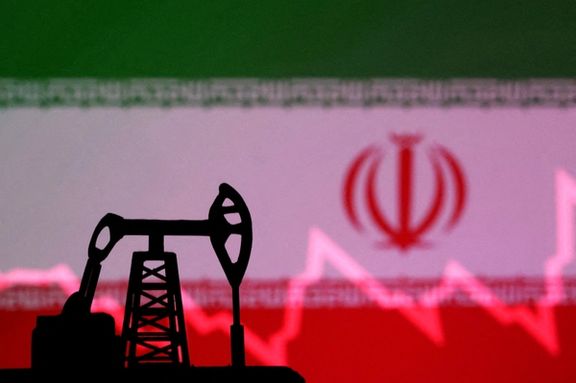
Advisers to US president-elect Donald Trump are crafting a wide-ranging sanctions strategy to squeeze Iran, Bloomberg reported citing people familiar with the matter.

Advisers to US president-elect Donald Trump are crafting a wide-ranging sanctions strategy to squeeze Iran, Bloomberg reported citing people familiar with the matter.
Trump’s key advisers plan to return to a maximum pressure strategy targeting Tehran, the sources said, starting with a sanctions package targeting major players in the oil industry due as soon as February.
The International Energy Agency (IEA) on Wednesday said the latest US sanctions targeting Russian and Iranian oil could eventually dent their export volumes.
New US sanctions on Iran and Russia announced last Friday target entities responsible for over one-third of Russian and Iranian crude exports in 2024.

A strategic cooperation agreement that Russia and Iran are set to sign will not include a mutual defense clause, unlike agreements Moscow has signed with Pyongyang and Minsk, Russia's news agency cited Iran's envoy as saying on Thursday.
"The nature of this agreement is different. They (Belarus and North Korea) established partnership relations (with Moscow) in a number of areas that we did not particularly touch upon. Our country's independence and security, as well as self-reliance, are extremely important. We are not interested in joining any bloc," Kazem Jalali, Iran's ambassador to Moscow, was cited as saying by TASS.
Jalali was also quoted as saying that Iran would ensure its own security.
Russian President Vladimir Putin and Iranian President Masoud Pezeshkian are scheduled to hold talks in Russia on January 17, after which they will sign the long-awaited comprehensive strategic partnership pact, the Kremlin announced on Monday.
Tehran and Moscow originally signed a long-term agreement in March 2001 which was initially set for a ten-year term but was extended twice, each time for five years. Despite prior discussions, similar promises to finalize a renewed treaty have remained unfulfilled.
According to Iran’s ambassador to Russia, the two countries agreed in 2021 to extend the treaty for an additional five years, pushing its expiration to 2026.
In 2023, reports emerged suggesting potential challenges in drafting a new agreement with Russia, though specific details about its content have not been publicly disclosed.
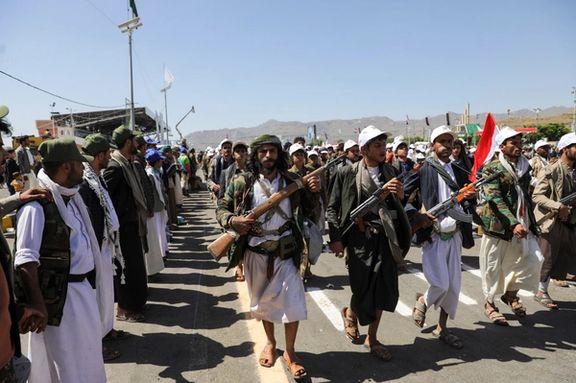
Iran’s UN ambassador says Iran is not involved in or supporting the training of the Yemeni Houthis, responding to a recent report by the UN Panel of Experts on Yemen.
In a letter sent to UN Secretary-General Antonio Guterres and the President of the Security Council on Wednesday, Amir Saeed Iravani criticized the report’s conclusions, describing them as lacking credible evidence and relying on unreliable sources.
A confidential report seen by Reuters in September said that Yemen’s Houthis had grown into a powerful military organization with external support from Iran’s Revolutionary Guard Corps (IRGC), Hezbollah, and Iraqi specialists.
According to the report, Houthi fighters traveled abroad for training and gained access to advanced weapons systems reportedly linked to Iranian and regional sources.
“The multiple testimonies gathered by the panel from military experts, Yemeni officials, and individuals close to the Houthis indicate that they do not have the capacity to develop and produce, without foreign support, complex weapon systems,” the UN experts wrote in the report.
“This transformation has been possible due to the transfer of materiel and the assistance and training provided by IRGC-QF, Hezbollah, and Iraqi specialists and technicians to the Houthis," it added. The findings were presented to the 15-member Security Council Yemen sanctions committee.
Since the Gaza war began, following the Hamas attack on Israel on October 7, 2023, the Houthis have launched around 320 UAVs toward Israel, with over 100 intercepted by the Israeli Air Force.
The group, which controls roughly one-third of Yemen, has aligned itself with Hamas in an effort to pressure for a ceasefire in Gaza, imposing a blockade in the Red Sea region, significantly disrupting global shipping routes.
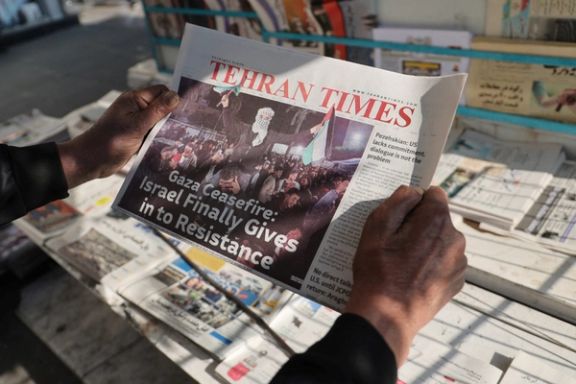
Even as a long-sought ceasefire in Gaza has yet to take effect, Iran's supreme leader and other top officials have already begun celebrating it as a victory for Palestinian fighters backed by Tehran.
Iran’s Supreme Leader Ali Khamenei said that the so-called Resistance Axis had succeeded in forcing Israel to retreat.
"Today, the world understood that the patience of the people of Gaza and the steadfastness of the Palestinian resistance forced the Zionist regime to retreat," he wrote on X.
"History will record that one day, a Zionist group, with the most heinous crimes, killed thousands of women and children and ultimately failed."
A ceasefire agreement between Hamas, the Tehran-backed Palestinian armed group, and Israel, mediated by the US, Qatar and Egypt, is expected to begin on Sunday.
The agreement stipulates the release of Israeli hostages held during the 15-month conflict, triggered by Hamas’s October 2023 attack, which devastated Gaza and resulted in the deaths of tens of thousands of Palestinians.
Iran's other armed allies in the region including Hezbollah in Lebanon and the Houthis in Yemen joined the fight against Israel, and the Islamic Republic itself has twice launched missile fusillades against the Jewish State.
The dominant theme in nearly all statements from Iranian officials is the celebration of the resistance's victory against Israel.
This perceived victory is attributed to the resilience and steadfastness of the Gazan population, the majority of whom have been displaced.
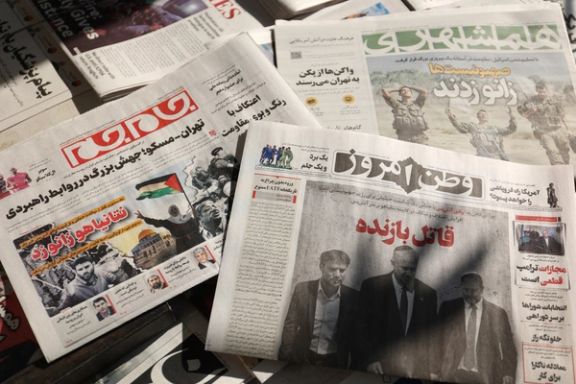
"Peace be upon you for your patience. We welcome the ceasefire agreement in Gaza and salute the souls of the martyrs. It was this brave 15-month Palestinian resistance that thwarted the Zionist regime from achieving its strategic goals," Mohammad Bagher Ghalibaf, Speaker of the Iranian Parliament, wrote on X,.
A statement from the Islamic Revolutionary Guard Corps (IRGC) framed the agreement as a ceasefire imposed on Israel.
"The end of the war and the imposition of a ceasefire on the Zionist regime (Israel) is a clear and great victory for Palestine and a greater defeat for the Zionist regime," it said.
The IRGC also warned against any Israeli violations of the ceasefire and emphasized its forces' readiness to confront future conflicts, saying, "The resistance remains alive, thriving, strong... and has deeper faith in the divine promise of liberating the al-Aqsa mosque and Jerusalem."
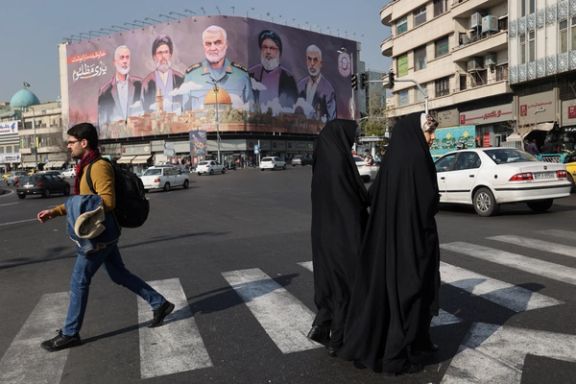
Almost none of the Iranian statements detailed any specific achievements for Hamas, instead focusing on portraying the truce as a loss for Israel.
The Iranian Ministry of Foreign Affairs also issued a statement declaring the agreement a "historic victory for the Palestinians" and condemned the role of Western nations in supporting Israel and prolonging the conflict.
Hamas, designated a terrorist group by countries such as the US and UK, has been significantly weakened since Israel's relentless retaliatory action following Hamas's October 7 2023 attacks.
IRGC Deputy Commander Ali Fadavi declared the ceasefire a major victory because Israel was compelled to accept "all the conditions of Hamas and the resistance front."
Iranian Ambassador to Lebanon Mojtaba Amani said that Israel was forced to sign an agreement it had initially rejected, labeling it as a failure for Israeli Prime Minister Benjamin Netanyahu in his efforts to dismantle the organizational structure and military capabilities of Hezbollah, Hamas, and Islamic Jihad.
However, Sadegh Zibakalam, a former lawmaker known for his critical views, offered a contrasting perspective. "The ceasefire between Hamas and Israel hasn't even begun, and the Islamic Republic is already claiming victory. I wish they would define what victory means," he said.
He said US President-elect Donald Trump was to be credited with the ceasefire: “Netanyahu hasn't won either because the agreement is the same one they had reached before, but Biden couldn't stand up to Netanyahu. If there is a victory, it belongs to Trump, who was able to force the Israeli hardliners to agree to a deal."
Israel's acceptance of the deal would not be official until approved by the country's security cabinet and government, with a vote scheduled for Thursday, according to Reuters.
Netanyahu accused Hamas of making last-minute demands and reneging on agreements. Reuters reported that Gaza residents and authorities said Israeli airstrikes killed at least 70 people in the enclave overnight on Thursday.
In November, Hezbollah and Israel agreed to a 60-day ceasefire weeks after escalating conflict led to the death of Hezbollah leader Hassan Nasrallah in an Israeli airstrike in Beirut.
In October, Israeli forces also killed Hamas leader Yahya Sinwar, the architect of the October 7 attacks which killed around 1,100 Israelis - most of them civilians - and ensnared over 250 hostages.
Ismail Haniyeh, the head of the group's political bureau was killed in an Israeli bombing of his guesthouse in Tehran in August.
Western officials, including White House National Security Advisor Jake Sullivan, have suggested that the conflict between Israel and the Iranian-backed "Resistance Axis" has significantly weakened Tehran.
However, the IRGC's top commander Hossein Salami stated last week that Iran's enemies are experiencing a "false sense of delight" regarding recent regional developments including the fall of Syrian President Bashar al-Assad, Tehran’s longtime ally.
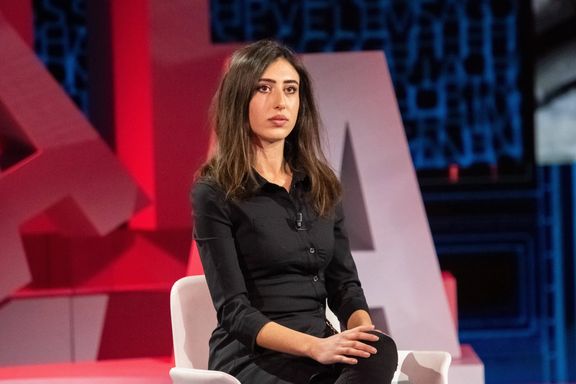
The spokesman for Iran's Ministry of Foreign Affairs said Thursday that Trump advisor Elon Musk had no involvement in the recent release of Italian journalist Cecilia Sala, as reported in US media.
Esmaeil Baghaei dismissed reports from the New York Times in November as "media storytelling and pure fabrication."
Officials from the Italian Foreign Ministry also said they had no knowledge of any connection between Musk and Sala’s release.
Iranian media reported that Baghaei also reiterated that there was no meeting between Ambassador Amir-Saeid Iravani and Elon Musk.
Cecilia Sala, a 29-year-old journalist and podcaster, was arrested in Iran last month on unspecified charges, despite holding a valid press pass. She was placed in solitary confinement, raising international concerns about her well-being.
A source familiar with discussions between Sala's family and the Italian government told Iran International that Tehran had tied her release to Italy’s handling of an Iranian detainee.
Iran suggested that Sala’s freedom was contingent on the release of Mohammad Abedini Najafabadi, a 38-year-old Iranian detained by Italian authorities at the request of the United States, according to the source. Tehran denies any connection between the two cases.
Following Sala's release, Najafabadi was also freed on Sunday by Italian authorities, according to Iran's Judiciary.
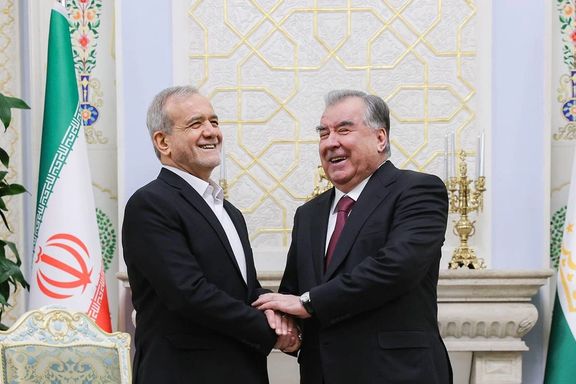
Iranian President Masoud Pezeshkian said Iran opposes war and violence during his visit to Tajikistan, his first international trip of 2025.
Speaking to students and faculty at Avicenna Tajik State Medical University on Thursday, Pezeshkian said, "We despise war and violence. From a medical perspective, anyone who engages in war likely has an issue in their brain; otherwise, humans would not fight one another."
Earlier this week, Pezeshkian told NBC News that Tehran is committed to peace and de-escalation, delivering a message likely aimed at the incoming US administration.
"The Islamic Republic of Iran is committed to peace and de-escalation in the region and globally. It condemns the Zionist regime's war-mongering, aggression, and genocide, and stands ready for honorable and equal negotiations," Pezeshkian said in an interview broadcast from Tehran on Wednesday.
Pezeshkian went on a two-day trip to Tajikistan, where Iran and Tajikistan signed 23 Memorandums of Understanding (MoUs) covering economic, political, cultural, educational, and trade cooperation.
The agreements, signed in the presence of Pezeshkian and Tajik President Emomali Rahmon, highlighted both countries' commitment to strengthening bilateral ties, according to Iranian local media.
While visiting Avicenna University, Pezeshkian, a heart surgeon by profession, was awarded a professorship and an honorary diploma in recognition of his contributions to healthcare and public service.
The please comes amid international sanctions against Iran for its ongoing nuclear program, support of Russia's invasion of Ukraine, and support of armed groups across the Middle East.
Tehran has also been sanctioned for its violent crackdown of protesters in 2022 which saw over 500 people killed by security forces following the death of Mahsa Amini in morality police custody for not wearing her hijab properly.